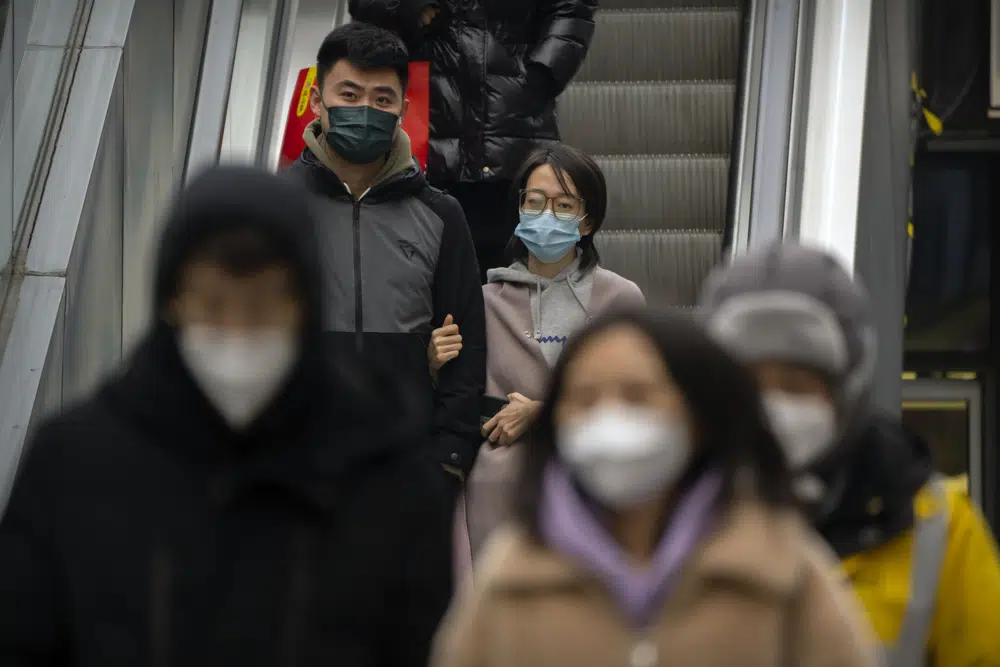South Korea and Japan have criticized China’s decision to halt the issue of South Korean and Japanese visas. In an apparent expression of ire, Chinese embassies stopped issuing new visas for South Koreans and Japanese yesterday, January 10, 2023.
It was not clear whether China would expand the visa suspensions to other countries that have imposed stricter virus testing on passengers from China following its COVID-19 surge.
South Korean Foreign Minister, Park Jin disclosed today, January 11, 2023 that he finds it “significantly regrettable” that China stopped issuing short-term visas to South Koreans and called for China to align its pandemic steps with “scientific and objective facts.”
Japanese Chief Cabinet Secretary Hirokazu Matsuno criticized China for “one-sidedly” restricting visa issuances to the Japanese nationals “because of a reason that is not related to COVID-19 measures.”
Tokyo protested and demanded China to scrap the measures and that Japan will “respond appropriately while closely watching China’s infection situation and how information disclosures are handled by the Chinese side,” Matsuno divulged.

According to South Korea’s Disease Control and Prevention Agency, about 17% of the 2,550 short-term travelers from China from January 2 to Tuesday, January 10,2023 have tested positive.
South Korea has stopped issuing most short-term visas at its consulates in China till the end of January while also requiring all passengers from China, Hong Kong and Macau to submit proofs of negative tests taken within 48 hours of their arrival in addition to COVID-19 tests at the airport.
Matsuno expressed that Japan had to take temporary measures to avoid rapid inflow of infections into Japan because of China’s spreading infections and lack of transparency about the situation.
Additionally, Matsuno intoned that Japanese border measures are purely aimed at preventing infections and have aimed to limit effects on international travel.
China’s Foreign Ministry threatened countermeasures last week against countries that had announced new virus testing requirements for travelers from China.
At least 10 governments in Europe, North America and Asia have done so recently. Meanwhile, Thailand sent three ministers to Bangkok’s Suvarnabhumi Airport to welcome the country’s first planeload of Chinese tourists in years, in a bid to revive inbound tourism.
Japan reopened its borders for individual tourism in October. Most travelers can show proof of vaccination instead of testing at the airport, unless they show symptoms.
However, since December 30, 2022, travelers from China must show pre-departure negative tests and take an additional test upon arrival. Those who test positive must quarantine at designated facilities for up to seven days.
According to health ministry statistics, about 97% of 497 people who tested positive upon arrivals from December 31 to January 9 were Chinese or had recently been in China.
Ministry In South Korea Opens Telephone Lines For Businesses To Report Disruptions
South Korea’s Ministry of Small and Medium-sized Enterprises and Startups on Wednesday, January 11, 2023 opened telephone lines for small businesses to report any disruption caused by China’s decision to halt short-term visas.
While only a few calls had been received as of Wednesday afternoon, officials say that the Chinese steps could adversely affect some companies exporting to China by forcing their employees to cancel visits and business meetings.
Ministry Official Lee Gwon-jae remarked, “We are closely monitoring how much disruption” the Chinese steps may cause.
Impact on Japan could be limited for now, as Japanese business people are still largely watching the development. A major tour agency said that none of its customers were currently seeking China visas.
Chinese Foreign Ministry spokesperson Wang Wenbin defended China’s stance. Wang said that China made reciprocal responses in light of the actual discriminatory measures taken by these countries against China.
READ ALSO: China Renews Threat Against Taiwan























